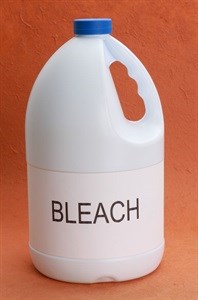
Alarmingly, one of these reports shows that: "Bleach remained very popular in South Africa during 2014, with many low-income households using bleach as a multi-purpose cleaning product. Many South African consumers view bleach as an affordable alternative to other home-care products due to the convenience it offers in terms of multiple applications without the hassle of needing to purchase and store numerous different cleaning products. In a country in which a substantial proportion of the population can be classified as low-income consumers, this is particularly important as purchasing numerous different specialised home-care products can be very expensive."
It seems then that consumers are unaware of the devastating health and environmental impacts of bleach, or that green cleaning products have become increasingly more affordable. These products are usually highly concentrated, meaning that they last much longer than their chemical counterparts (while the biological action of enzyme-based cleaners offer superior efficacy).
According to health site Sustainable Baby Steps, bleach is one of the most corrosive and deadly chemicals. The site confirms that: "The burn you feel when using bleach products or the coughing you may experience is a sign of the corrosive properties of bleach in your body. And that slippery feeling of bleach on your skin? That's actually caused by the lye (caustic soda) reacting to the fats and oils on your skin." If bleach is mixed with ammonia (found in urine - think toilet cleaning) or dish soap, deadly gases, such as mustard gas, are formed. Its oxidation forms hypochlorous acid, which destroys cell structures in humans - having an even greater effect on pets and birds.
Cleaning Africa, a South African cleaning services provider, came to the realisation that the huge amount of chemicals that it goes through on a monthly basis could only have a negative impact on the beautiful environment. "We researched green chemicals for a period of two years prior to our using them. Like anything new on the market the cost of the green chemicals was exorbitant at first," confirmed Midge Wood, CE of Cleaning Africa Services.

Wood immediately planned a trip to China to attend two trade shows in the hopes of finding an answer to this cost dilemma. "After 100km of walking I found a cost-effective Chinese solution; the problem with this was that we would have to import directly, which is not our business."
This is, however, Green Worx Cleaning Solutions' business. Clinton Smith, Green Worx's Technical and Sales Director, had spent a few years building a relationship with Wood and offered the perfect solution to both the import and pricing issues. With a belief that everything should be tested, Wood selected two pilot sites to test the green cleaning products of two suppliers. "This was started on 27 February 2012, and ran for a month. Smith's chemicals came out tops, both in pricing and in effect. We then had the major task of re-training over 400 staff at over 60 sites. This task was finished on Friday, 26 October, 2012, and we haven't looked back since."
Going green hasn't been an expensive exercise, with the company absorbing the slight increase in cost, offering clients safer, more effective products for the same price. "Not only have they saved themselves a price increase, but we use less than one litre of water per car wash (versus 40 litres with a jet wash), with a resultant electricity saving," concluded Wood.
"All our cleaning products are now green. They are used in offices, showrooms, workshops, factories and in toilets and kitchens. The enzymes carry on cleaning long after the physical cleaning has been done. They permeate into the plumbing and the floor cracks and grouting removing all odours. The cars themselves are left with an impressive, long lasting shine."
To view the Euromonitor International research, particular to South Africa, go to Euromonitor.com. To find out more about the negative effects of bleach, go to SustainableBabySteps.com. For more information about Cleaning Africa Services, contact Midge Wood or go to www.cleaningafrica.co.za.